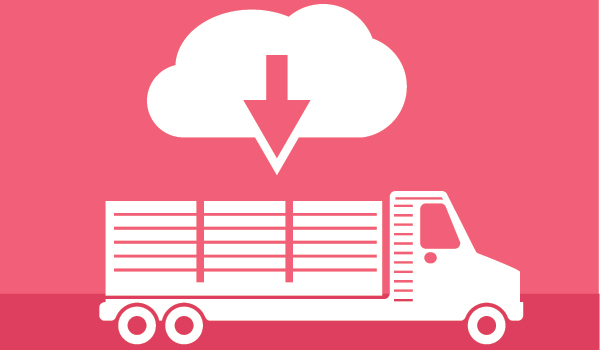How to Decide if You Should Outsource Your TMS

The days of the in-house transportation management system (TMS) are fading. Sure, there are a few benefits to building a custom system. It’s designed for a shipper’s specific needs, and all the data gathered stays in the family, so to speak. Yet, there are problems. Many shippers find their custom systems don’t communicate properly with software in use by their carrier partners and service providers. Others find themselves with a bit of buyers’ remorse, as the speed of technology development leaves a custom system lagging within only a couple of years.
However, thanks to cloud computing, shippers of all sizes can now afford to foot the bill for a transportation management system and stand on equal footing with the giants. Hosted solutions, or Software-as-a-Service (SaaS), leave all the costly headaches of hardware installation with the provider, allowing for faster deployment. Standardized forms and reports enable easy integration with partners, and support and continuous improvement experts are available without needing to keep extra personnel on staff. SaaS also receives frequent updates, so it stays current with leading-edge technology developments. An up-to-date TMS ensures shippers benefit from all the network efficiencies—such as better reporting, improved exception tracking, and easier load consolidation—that come from increased supply chain visibility.
Many executives fear giving up control of their data to a third party, but most hosted solutions allow companies to back up data on their own servers, and/or provide quick and easy access to data. After all, the provider may own the TMS, but the shipper owns the data that TMS generates about their company.
Of course, there are reasons to build a custom system. Perhaps a shipper has rare or unique transportation requirements that aren’t covered by standard commercial hosted solutions, in which case the financial investment involved with hardware installation and maintenance of a custom solution may be worth the trouble. Unless that’s the case, for most shippers, an outsourced solution will save both time and money.
DO YOU NEED A HOSTED OR IN-HOUSE TMS?
Every shipper is different, so in the end it comes down to the specific requirements and resources of each to decide if they need an in-house or outsourced system. Here are four factors to consider when deciding which is right for your company:
- What’s your budget? One of the biggest draws for a SaaS solution is reduced cost. A custom-built, locally hosted solution will cost big up-front and incur long-term maintenance costs. A hosted solution boasts reduced up-front cost, but typically requires an ongoing transaction fee.
- How many partners? Shippers who outsource to carriers and logistics providers will enjoy the ease of standardized reports and forms that comes with a commercial hosted TMS. Companies who have private fleets can avoid these concerns if they decide to go in-house.
- What do you know? A hosted solutions provider offers access to best practices, key performance indicators, pricing, service levels, and benchmark information gathered on a larger scale than any individual shipper could manage. A company would require a full and knowledgeable transportation team in-house to compare.
- What’s your support level? SaaS providers offer support and have teams working to keep hosted solutions functional and updated. An in-house solution will most likely require dedicated staff or contract personnel to handle updates and maintenance.
